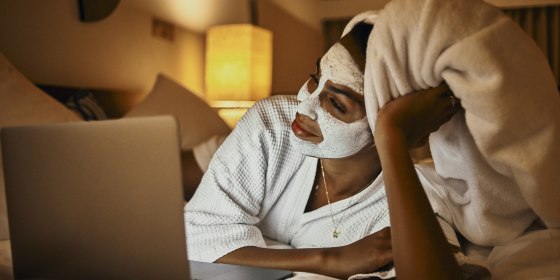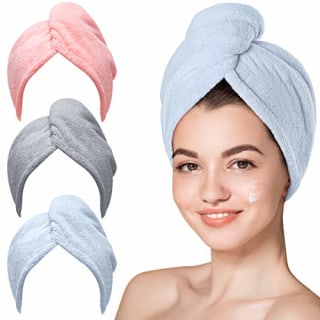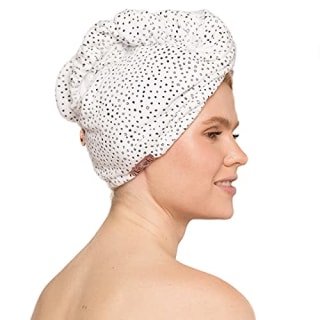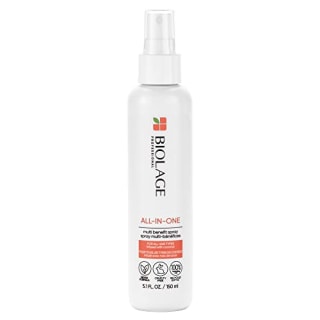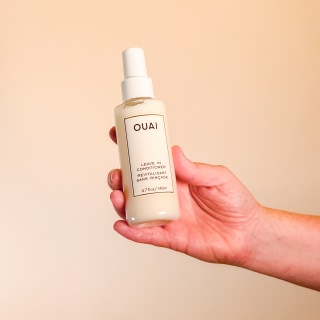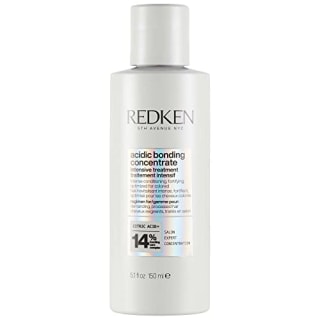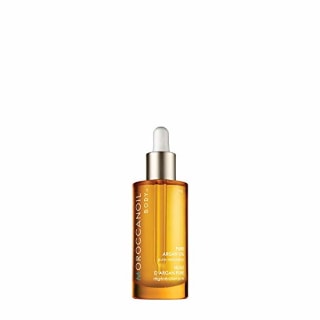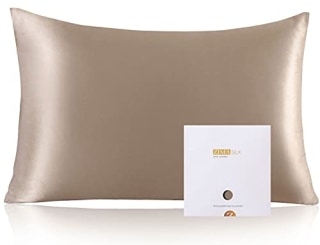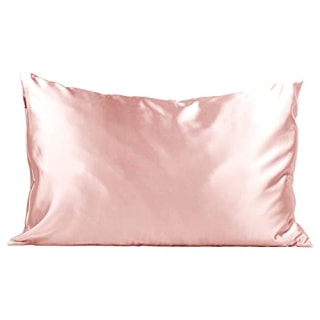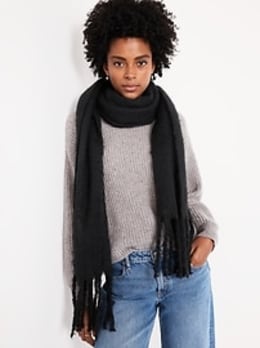Anyone who is a fan of a nighttime shower knows that nothing feels better than rinsing off after a long day. But what's not quite as great is crawling into bed afterward and having your sopping wet hair drip all over your sheets and pillows.
But, as it turns out, having a wet pillow isn't the only reason why you might want to consider bringing out the blow dryer before you go to bed — going to sleep with wet hair can actually do some potential harm to your hair. We spoke with three experts to learn more about why you shouldn't be sleeping with wet hair, and how you can protect your strands if you can't avoid doing it.
Is it OK to go to bed with wet hair?
Basically, if you're trying to minimize damage to your hair and keep your scalp healthy, it's probably not the best idea. When you go to bed with wet hair, you're creating a humid environment on your scalp, which leaves it more susceptible to the growth of yeast, explains Dr. Julie Russak, founder and CEO of Russak Dermatology Clinic in New York City. "You're really offsetting that balance of the healthy microbiome, and that's where the problem comes from."
She adds that any unbalance of the scalp microbiome can lead to inflammation and an "unhealthy bacterial population, an unhealthy environment on the scalp and therefore will affect how your hair grows."
But that's not all. When your hair is wet, it's more fragile and prone to breakage, says Jasmine Burnside, a hairstylist in New York City. "Going to bed with wet or damp hair will most likely lead to more friction on the strands, ultimately leading to potential damage." That's why she says it's something that she advises against.
While everyone is at risk for potential damage when going to bed with wet hair, Illeisha Lussiano, hairstylist and founder of The Way in New York City says that those who have fine hair, scalp conditions or a dry or brittle texture are practically "a guarantee to regret the choice."
How to sleep with wet hair
Sometimes it's unavoidable. There will always be nights when you wash your hair late in the evening and don't have time to bring out the blow dryer. In those cases, Russak suggests wrapping your strands in a hair-specific towel, which can help absorb some of the excess moisture so it's damp, rather than soaking wet, by the time you retire for the night.
Burnside says that you should make sure it is detangled or styled in a protective way, like in braids or a sleeping bonnet, which "could help mitigate the potential breakage and friction that would be caused with the hair completely down," she says. She also recommends applying a leave-in conditioner or treatment before bed, as that can help reduce friction and prevent tangles, as well as protect and repair your strands.
The material that you're sleeping on can also make a difference. According to Russak, you should opt for a silk pillowcase. "Because a silk pillowcase decreases the friction of physical forces on the hair shaft, so it will not destroy the cuticle as much," she explains.
Here, we're sharing some of the products that can help you protect your hair and scalp on those nights when you can't avoid going right to sleep after a wash.
Products for sleeping with wet hair
Hicober Microfiber Hair Towel
Made of a "super-absorbent," breathable microfiber material, this towel is said to dry all hair types quickly, so you can put it on, finish up your nightly chores and then take your hair down before turning in for the night. One reviewer raved about how it speeds up the drying process. "I'll put the towel on first thing after leaving the shower, and then keep it on while I brush my teeth, moisturize, and get dressed, plus an extra 15 minutes or so. By the time I take it off, my roots and then some are completely dry. "
Kitsch Microfiber Hair Towel
While Kitsch is known for their luxe satin hair products, they also have a microfiber towel in their hair care arsenal. According to the brand, the microfiber fabric is meant to absorb five times as much moisture from hair. It also has an easy twist design that will keep your hair in place and prevent it from snagging.
Biolage All-In-One Coconut Infusion Multi-Benefit Spray
When it comes to products that can help protect your hair while you sleep, Burnside recommends this multi-purpose spray. Not only can it be used as a heat protectant, but the brand says that it also helps to enhance shine, detangle strands, prevent split ends and more.
Ouai Leave-In Conditioner
Burnside says a leave-in conditioner can help prevent your hair from tangling throughout the night. Two Shop TODAY staffers love this Ouai Leave-in Conditioner.
"This smells amazing, and you just need a couple of spritzes before combing out your wet hair. The brush slides more easily and leaves your hair feeling soft," says associate editor Shannon Garlin. Production associate Jill Ortiz raves about it, too: “This one is the best. Period! I will buy it until they stop selling it."
Redken Acidic Bonding Concentrate Intensive Treatment Mask
If you're already dealing with damage, sleeping with wet hair can make it worse. That's why you want to incorporate products that will help repair strands before bed. Burnside likes this mask from Redken. The pre-shampoo rinse-out treatment is said to provide instant results, working on a molecular level to help repair and fortify your strands.
Moroccanoil Pure Argan Oil
This formula was recently named the best hair oil during our recent Shop TODAY Beauty Awards. Featuring antioxidant and fatty acid-rich argan oil, it may help condition and nourish your hair at the end of the day.
Zimasilk 100% Mulberry Silk Pillowcase
Beauty experts are fans of silk pillowcases for a number of reasons, and in this case, they can be helpful for minimizing the damage to your hair while you sleep. This one is a shopper-loved version from Amazon with more than 32,000 five-star ratings. The mulberry silk pillow comes in multiple colors and sizes to match your bedroom setup.
Kitsch Satin Pillowcase
This pillowcase is made from satin, which, like silk, can help promote healthy hair by allowing it to retain your hair’s natural oils and reducing dryness and breakage, Kitsch says.
Meet our experts
- Dr. Julie Russak, MD, is a board-certified dermatologist in New York City. She is a fellow of the American Academy of Dermatology and founder of Russak Dermatology Clinic. She is also an assistant clinical professor the Mount Sinai Hospital.
- Jasmine Burnside is a hairstylist and licensed cosmetologist in New York City. She is the founder of the skin and hair care brand Basic Principle.
- Illeisha Lussiano is a hairstylist and founder of The Way in New York City. She specializes in color and natural hair.

